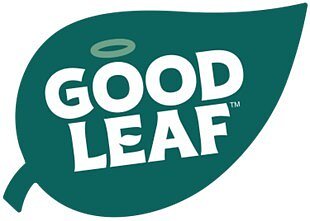
GoodLeaf Farms Secures $52M to Double Production, Tackle Canada's Food Security
Canadian vertical farming leader GoodLeaf Farms receives $52 million investment to expand production, address supply chain vulnerabilities, and bring locally-grown produce to more Canadians.
GoodLeaf Farms Secures $52M to Double Production, Tackle Canada's Food Security
Toronto, ON – November 13, 2025 – GoodLeaf Farms, a leading innovator in vertical farming, today announced a $52 million funding round to accelerate its expansion and address growing concerns about Canadian food security. The investment will be used to double production capacity at its Alberta and Quebec farms in 2026, bolstering the domestic supply of fresh, locally-grown leafy greens and reducing reliance on imports.
This funding round includes investments from Farm Credit Canada (FCC), Power Sustainable Lios, and existing partner McCain Foods, highlighting a growing investor confidence in the potential of vertical farming to revolutionize the Canadian food system. The move comes as supply chain vulnerabilities and a desire for sustainable food sources drive increased demand for locally-produced options.
Addressing a Critical Need for Local Food
Canada currently imports over 70% of its fresh fruits and vegetables, making the country particularly vulnerable to disruptions in global supply chains, as seen during the pandemic. “The pandemic really exposed the fragility of our food system,” explained a source close to the company. “Consumers and retailers are demanding more reliable and resilient sources of fresh produce.”
GoodLeaf’s approach tackles this issue by utilizing controlled environment agriculture (CEA) within vertically stacked layers, maximizing space and minimizing resource use. This allows for year-round production, regardless of external climate conditions. The company currently operates farms in Guelph, Ontario, Calgary and Montreal, Quebec, growing a range of baby greens, microgreens, and herbs.
A Growing Market with Strong Investor Confidence
The Canadian vertical farming market is experiencing significant growth. A recent report projects the market to reach $3.004 billion by 2033, with a CAGR of 23.1% from 2025-2033. This growth is fueled by increasing consumer demand for fresh, locally-sourced, and sustainable food options, along with advancements in technologies like LED lighting, hydroponics, and automation.
“We’re seeing a clear shift in consumer preferences towards locally-grown produce,” said an industry analyst. “People want to know where their food comes from, and they're willing to pay a premium for quality and sustainability.”
This growing demand has attracted significant investment in the sector, with both established agricultural players and venture capital firms vying for a piece of the action. McCain Foods, a long-term partner of GoodLeaf, has been a key investor, recognizing the potential of vertical farming to transform the food landscape.
Investor Rationale: Sustainability, Security, and Innovation
Each of the investors in this latest funding round brings a unique perspective and rationale to the table.
Farm Credit Canada (FCC), a federal Crown corporation providing financing and support to Canadian agriculture, sees GoodLeaf as a key player in securing Canada’s food future. “GoodLeaf’s innovative approach drives productivity, strengthens the food economy, and ensures a reliable supply of fresh produce nationwide,” stated Adam Smalley, Managing Director of FCC Capital.
Power Sustainable Lios, a specialized agri-food investor, emphasizes GoodLeaf’s operational and financial milestones. “GoodLeaf’s ability to raise capital reflects investor confidence in vertical farming as a key solution to Canada’s food security challenges,” said Jonathan Belair, Managing Partner at Power Sustainable Lios.
McCain Foods’ continued investment underscores its commitment to sustainable agriculture and innovation. “We see GoodLeaf’s technology as a way to create spring and summer growing conditions year-round in Canada,” stated a representative from McCain. “This provides local, fresh, healthy leafy greens and reduces reliance on long-distance imports.”
Competition and the Future of Vertical Farming in Canada
While GoodLeaf Farms is currently the largest national operator, the Canadian vertical farming landscape is becoming increasingly competitive. Several other companies, including UP Vertical Farms, Fieldless Farms, and Elevate Farms, are also vying for market share. These companies are employing various strategies, from focusing on specific regions to developing specialized technologies.
“The competition is healthy,” said an agricultural technology consultant. “It's driving innovation and forcing companies to improve their efficiency and sustainability.”
Looking ahead, the future of vertical farming in Canada appears bright. Experts predict continued growth in the sector, driven by increasing consumer demand, technological advancements, and a growing awareness of the importance of sustainable food systems. However, challenges remain, including high energy costs, the need for skilled labor, and the development of a robust supply chain.
“Vertical farming is not a silver bullet,” said a source familiar with the industry. “But it’s an important piece of the puzzle when it comes to building a more resilient and sustainable food system for Canada.”
GoodLeaf Farms plans to use the new funding to not only double its production capacity but also to invest in research and development, explore new crop varieties, and expand its distribution network. The company remains committed to providing Canadians with access to fresh, healthy, and locally-grown produce year-round.
